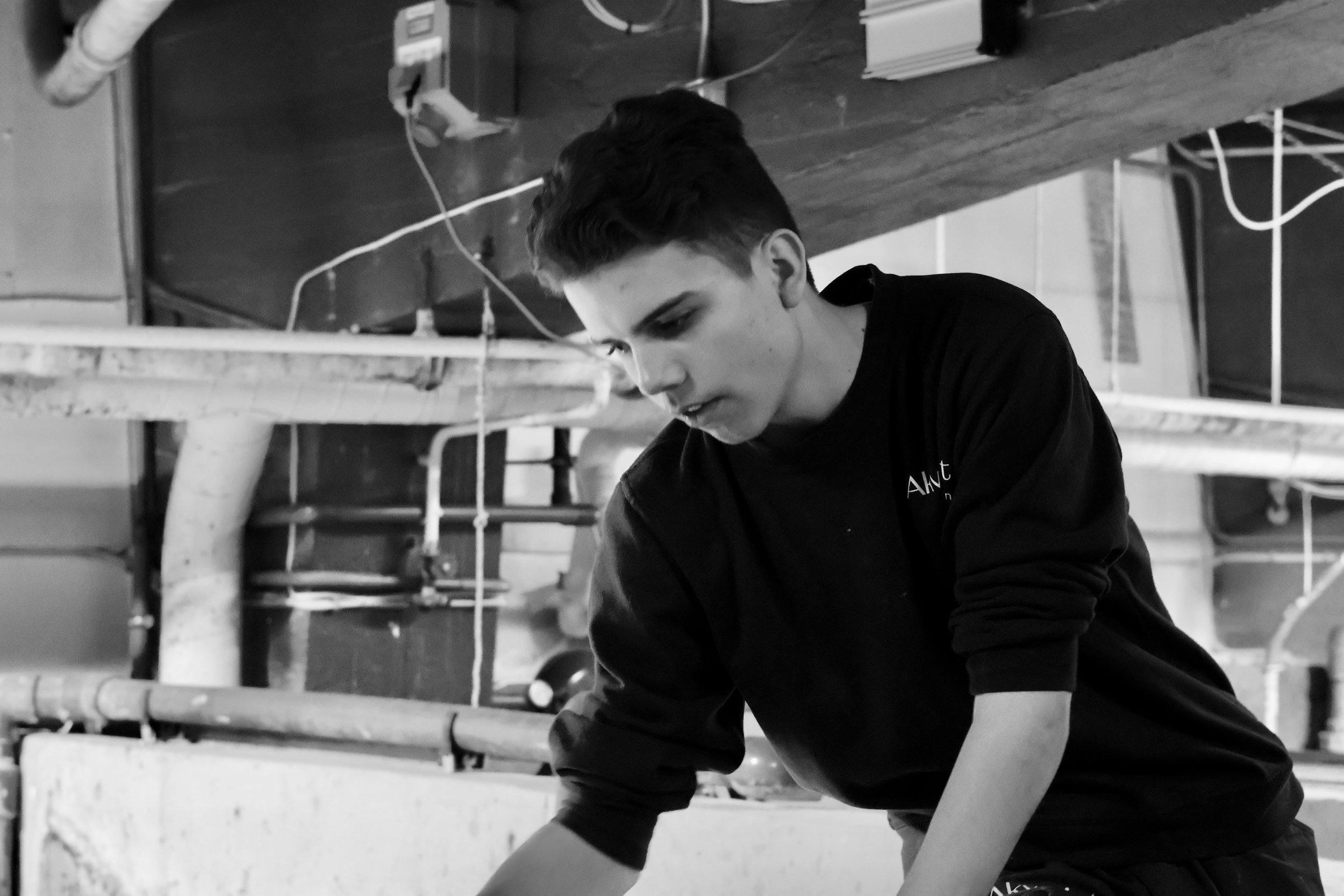Grieg Gender Programme, SOS Nigeria
Leeshia with friends
Leeshia
16-year-old Leeshia lives with her aunty in Jos, Plateau State. Orphaned at an early age, she was taken in by her aunty at only 6 months old. Her aunt who worked at a construction site for daily wages struggled to keep up with her feeding and education. The family income was about N1,000 (approx. NOK 22) daily. This led to Leeshia being irregular at school.
Leeshia with her aunt
Upon their referral to the Grieg Gender Programme in 2020, Leeshia’s caregiver joined the Village Savings and Loan Association (VSLA) where she had the opportunity to learn and share experiences on childcare with other women. She also received support of N140,000 (approx. NOK 3,160) to start a business by purchasing a commercial grinding machine and selling charcoal and firewood for domestic cooking.
Leeshia also joined the Grieg Gender Programme safe space and has been been a positive influence in her commuity and among other young people. She is a member of the SOS Children’s Villages, Plateau Programme’s Children and Youth Council and has organised a series of talks for other youth on topics such as children’s rights, gender-based violence and rape, reporting cases of rape and abuse, and the importance of girls’ education. She has benefited from a school scholarship as part of the Grieg programme. Together with her education support and economic empowerment for her aunt, Leeshia’s dream to complete her secondary education is being realised.
Adam
Adam and his family joined the Grieg Gender Programme at the end of 2020. He and his family relocated to Dorowa Community in Jos, Plateau State in 2012, after the civil crises in Jos. Having completed his secondary education, Adam could not further his education to attain a university degree as a result of the financial situation of his family.
Adam lives with his widowed mother and siblings in a barely furnished single room apartment. Prior to joining the programme, his mother earned around N15,000 (approx. NOK 340) monthly from her petty trade, which was barely enough to feed and provide the essentials for the family.
Upon joining the programme, a family development plan was created for the family to determine their areas of need and areas for support to ensure a sustainable means of livelihood. Based on this plan, Adam was supported to gain a skill in shoemaking, while his mother was linked to the self-help group (VSLA) where she was able to access soft loans to grow her business.
Adam has spent one year learning shoe cobbling under the programme. He is now skilled in several aspects of the shoemaking business and is looking to open his own store making and selling shoes. The 19-year-old also plans to train other young adults in his community in shoemaking so that they can gain a livelihood skill and stay busy. Adam now earns an income from producing and selling shoes, that he contributes to improve the situation for his family.
“I have been able to make and sell some of my own handmade shoes. I now make money and save to support my younger sister so that she will not drop out of school.”
Related stories
STORIES FROM OUR PRIORITY AREAS
All · Children & youth · Music & culture · Health & research · Climate action · Social impact investment









